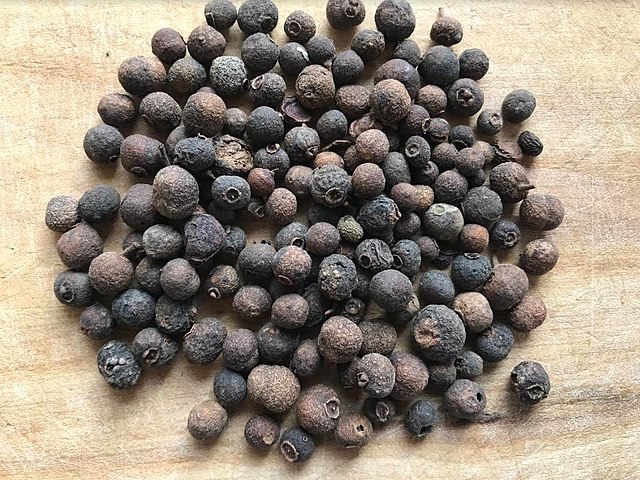
Known as the “King of Spices”, and traded like gold in the ancient world, black pepper is now mostly overlooked. It’s an obligatory ingredient in most recipes, added without much thought or question. Everybody has it in their cupboard, usually conveniently situated beside the salt. Nobody raises so much as an eyebrow for pepper. But does anyone know what it actually does? Why do we even have it in our cupboards?
Well, there’s its characteristic “peppery” taste, which many enjoy. Back in the Middle Ages, it was likely coveted, not only for its flavour, but also because it helped to prevent spoilage from bacteria at a time when there was no refrigeration.
In Chinese medicine, black pepper is known as “barbarian pepper”, because it was introduced to the country by traders from the West. It gained popularity there like nowhere else in the world, and now nearly half of all pepper production worldwide goes to China and Chinese restaurants worldwide [1]. (Black pepper beef, anyone?)
Why is this spice so valued in China? Well, it’s hot and acrid nature helps to warm the stomach, making food more readily digested, and Chinese culture has always been very focused on improving and protecting good digestion. In fact, when pepper is added to meals (particularly when combined with turmeric), it increases the bioavailability of nutrients [2] by a whopping 154%, and also reduces absorption time by half. That’s incredible!
In Ayurvedic medicine, pepper is also widely used, as it is considered an anti-kapha medicine, which burns up digestive ama, the sticky, mucus-like build-up of poorly digested food that tends to coat our digestive system over time. Its drying nature means it can help to clear up any kind of cold-damp mucus condition, such as sinus congestion, runny nose, or diarrhea.
It assists the liver in the detoxification of cancerous substances and protects it from damage almost as well as milk thistle does [3]. And its warming nature also stimulates blood circulation, and increases metabolism. I bet you didn’t know it did all that. No wonder it was once valued like gold!
The best way to use pepper, besides just sprinkling it over your meals, is to grind it up and add it to a warm glass of milk, preferably along with some turmeric. Then, add some honey to sweeten it. If you struggle with weak digestion, this will get your system humming in no time.
You can also consider using the Ayurvedic remedy Trikatu, which is a mixture of ground black pepper, ground pippali long pepper (or anise), and ground ginger in equal amounts and then made into a paste with the addition of honey. Add a teaspoon to a cup of hot water or warm milk and drink daily.
As someone who struggles with weak digestion myself, I have come to really value the properties of black pepper. Now is the time of year when people are most drawn to cold beverages and foods, which may help you feel cooler in the moment, but will only weaken your digestion over time. Consider adding pepper to your foods (and perhaps even your drinks) to keep this from happening.
- https://www.slurrp.com/article/pepper-the-most-important-spice-of-all-time-1667299590473
- https://www.codeage.com/blogs/education/black-pepper-in-supplements-how-piperine-may-enhance-bioavailability
- Singh A Rao AR Evaluation of the modulatory influence of black pepper on the hepatic detoxification system. Cancer-Lett. 1993 Aug 16;72(1-2):5-9
About the Author: Rebecca Wong has a BA in English Literature from the University of Waterloo and has been working in the herbal business since 2000. She studied at the Ontario College of Traditional Chinese Medicine under respected authorities Paul Des Rosiers and Vu Le, and graduated from the East West School of Planetary Herbology under Michael Tierra. She received training as a yoga teacher at The Branches in Kitchener/Waterloo, and therapeutic yoga teacher training from the School for Somatic Soulwork under Deniz Aydoslu. She now teaches yoga for anxiety, depression and burnout at Rebecca's Restful Yoga Studio in Toronto.
